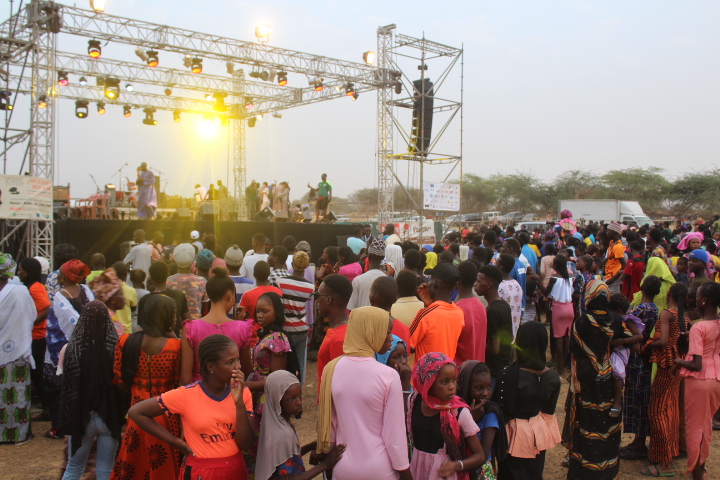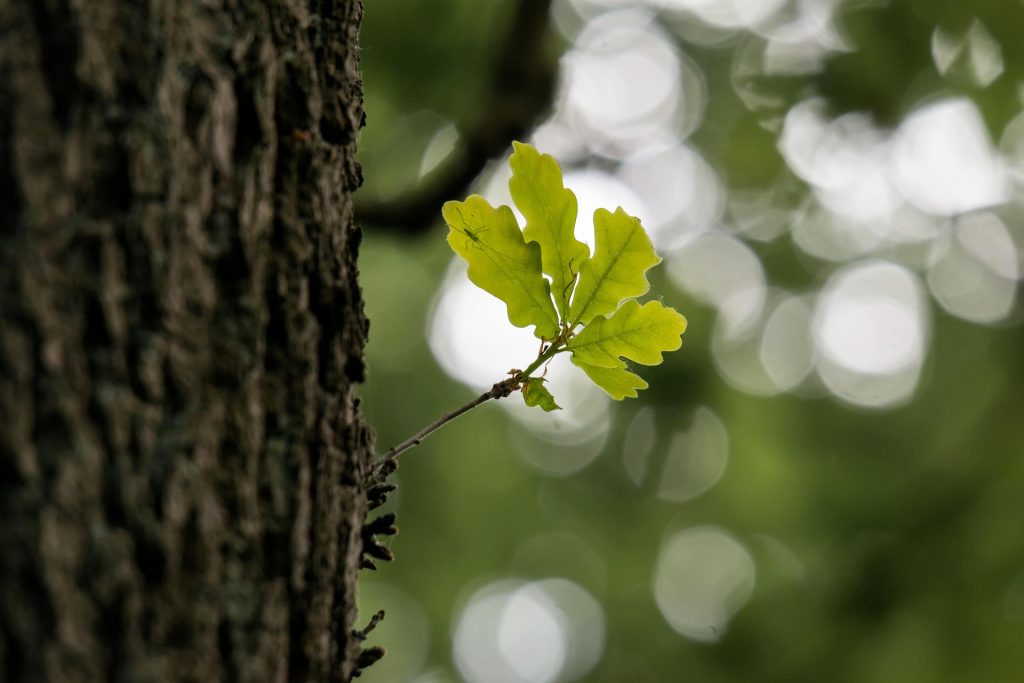Desert Blues | The Music Moves in Circles
They say music is a universal language and it is certainly true that all human cultures have some sort of music and that people can be affected—and often are!– by music created by people from a different culture. Music seems to communicate via rhythms, vibrations and melodic patterns that relate to essential universal elements. For that reason, musicians will often say they are not creators of music but that they simply are tuning into currents of the universe. And if string theory is a correct representation, then the vibrating “string” that is an indivisible element of matter implies that the universe is in fact made of music! As one who has traveled and/or sojourned in more that twenty-five countries in Europe, Africa, The Middle East, the Caribbean and Latin America, I have been repeatedly struck by the centrality of music in human lives around the world.
In 1975, I was living in Kano, Nigeria a city of the Sahel not far from the Sahara, and happened to see on local television a performance by master goge’ (one-string fiddle) player named Alhaji Garba Liu. He was playing what seemed to be blues runs on his fiddle, with a wild edge that made me think of Jimi Hendrix. With the help of a friend, I learned he was playing in a local nightclub and so went to see him perform; the combination of his intense improvisations, with his fiddle (amplified via a microphone stuck in the goge’s sounding chamber connected to public address speaker horns) taking on the tonality of an electric guitar, backed by a dozen or so percussionists and singers, was –no pun intended—electrifying. Afterwards, I shared a beer with Alhaji Liu in a little bar. As we talked, via a translator due to my limited Hausa, an Albert King blues song played over the bar’s sound-system. “I can play that,” Alhaji Liu said. That was my introduction to what has often been labeled “desert blues.”

There has been much speculation concerning the origin of the blues, a music created by African-Americans. As early as the 1960’s, blues historians such as Paul Oliver have suggested that the essential elements of the blues originated in the Sahel region of West Africa, brought over by Africans via the slave trade. There is certainly evidence for that. There are accounts of African slaves who brought with them stringed instruments such as the ngoni, xalam and akonting, regarded as forbears of the banjo. And of course these Africans brought with them knowledge of rhythms and an improvisational approach to music-making that is reflected in blues.
The pentatonic scales of much Sahelian music is also reflected in the blues. On the other hand, it is certainly a fact that pentatonic scales are a feature of traditional music all around the world. Also there is the fact the blues only developed in the United States, not in the Caribbean nor Latin America where African slaves were also taken. One expert on American traditional music I know has said that early blues sounds like speeded up “primitive” church hymns. Indeed some scholars assert that blues evolved out of “field hollers” that African-Americans developed in working in the fields.
There is also the interesting fact that Africans have been hearing music from the United States—and other places—for more than 100 years. Some of the music heard by some Africans has been the blues. When Malian singer/guitarist Ali Farka Toure was once asked what music influenced him he named John Lee Hooker, among others, which is interesting since some people speculate that John Lee Hooker’s style derived from the sort of musical tradition that formed Ali Farka Toure. It may simply be though that Ali Farka found John Lee Hooker’s music to be sympatico. But the similarities of feel and style with American blues of such as artists as Ali Farka Toure, Bombino, Afel Boucom, Tinawarin, Mdou Moctar, Miriam Hassan, Terrakraft and others make it reasonable to refer to these artists of the Sahel and Sahara as “desert blues.” Some of them, such as Tinawarin and Terrakraft, with electric guitars, play with a hard rock sensibility, even if the rhythms and scales are different. Interestingly, many of Taureg musicians were influenced by Jimi Hendrix, the Rolling Stones and Led Zeppelin, who they heard via cassettes and videos when in exile in Libya, Algeria and Burkina Fasso. Yes, the music goes ‘round in circles!
Ali Farka Toure live 1988
Ali Farka Toure w/ Boubacar Traore
A happy result of the “desert blues” marketing hook is that many of these artist have been touring in Europe and America, mesmerizing audiences with hypnotic rhythmic and riff repetition—in the case of the Tauregs, wearing their desert robes complete with traditional veils, swaying majestically to the music.
Ali Farka Toure passed away in 2006, at the relatively young age of 65, but his son Vieux Farka Toure has followed in his footsteps. Ironically, Ali Farka Toure did not want his son to become a musician, and indeed stopped speaking to him for some time when Vieux pursued his musical interest. Though this may seem strange to people in the United States and Europe, for people in traditional societies, musicians are often not highly regarded. The West African griots are respected but even they are very dependent on the largess of nobility and other upper class people. Besides performing at weddings, it is challenging for traditional musicians—or indeed most musicians—to make a good living from music. So singing the praises of the rich and powerful can be a necessary means of survival, but also a corruption of the griot tradition as keepers of history and honest brokers of tradition. In any case, Ali Farka wanted his son to be a soldier and then perhaps a civil servant—both guaranteed avenues of economic stability in Mali. But Vieux pursued his vision, deliberately developing a style distinct from his father’s style, in order to create his own identity. I first saw him as part of an African tribute to James Brown concert (how’s that for cross-cultural interchange!), orchestrated by former James Brown sideman Pee Wee Ellis and including a first-rate array of African and African-American musicians. The concept worked, in no small part due to the culture-bridging musicianship of Vieux Farka Toure and Senegalese multi-instrumentalist Cheick Lo. This past June I saw Vieux Farka Toure as he—after several albums and international tours—felt free to finally play in a way similar to his father. At World Café Live in Philadelphia, Vieux Farka along with an African trap drummer, European bassist and African percussionist playing calabash and gourds, began with a more stately acoustic feel, building gradually as he picked up an electric guitar and unleased cascading lines of beauty, swaying and dancing with the rhythm along with the bassist. He and his musicians smiled radiantly, consumed by the sheer joy of making music. This was not a show but a pure channeling of universal currents that swept up the audiences.
A few weeks later, Taureg singer/guitarist Bombino performed at the City Winery in Philadelphia. Born in Niger, 80 miles north of the desert town of Agadez, he picked up guitar, learning to play in part from watching rock videos from America and Europe, when his family fled to Burkina Fasso due to government repression during a Taureg rebellion. He was also steeped in Taureg traditional music as evidenced by his first recording as Groupe Bombino. But as he became more immersed in the possibilities of electric guitar, his music became more adventurous and rock-oriented leading some to dub him the “Jimi Hendrix of Africa.” He began touring internationally and soon became one of the most acclaimed of Taureg musicians. At the City Winery, clad in traditional Taureg robes, he performed in a power trio format, backed by a European trap drummer and Taureg rhythm guitarist bassist. Speaking very little between songs, he began with slower, hypnotic pieces and then built into roaring climaxes of incendiary runs on his guitar on later pieces, he and his bassist swaying to the rhythm. Taureg traditional music is highly repetitive and indeed attaining a trance state is a likely outcome. Bombino’s shy but increasingly unabashed smile made words unnecessary.
Bombino live 2013
There is no doubt that the “desert blues” musicians of West Africa connect so easily with international audiences because of the similarity of their music with blues and blues-rock. It seems that the music has emanated from the Sahel and the Sahara to America then Europe and back to Africa. The music does indeed move in circles!






